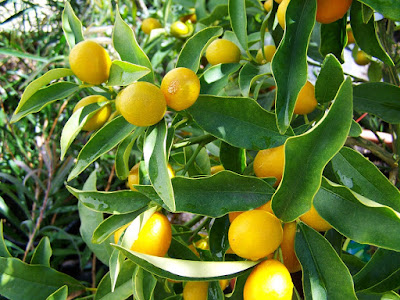Gardeners love bee-friendly plants and herbs. Lemon Balm,
officially called Melissa officinalis, is just such a bee charming herb that it
is even nicknamed “Bee Balm.” Not only does lemon balm attract plant
pollenating bees, it also has many health benefits and is rather tasty too.
This perennial, medicinal herb is plentiful in many a well-groomed
garden, as it grows in most climates, is low maintenance, and spreads far and
wide through its roots and seeds. Lemon balm thrives during the warmer part of
the year, with leaves withering during winter months, and sprouting forth again
in the spring.
To add a little Lemon Balm to your life, you can ask a local
gardener friend, most of them have plenty to spare. Or you can easily buy some
seeds or a plant at the garden store nearby. Lemon balm promises to make your
garden and your tummy happy.
The herb is delicious, with a zesty, lemony flavor and can
easily be added to any recipe or brewed to make tea. Some of the tried and true
uses for lemon balm are remedies for common, everyday symptoms.
Its most well-known use is as a slight sedative, which can
calm your nerves, but it has many other medicinal purposes as well. Lemon balm
can help soothe digestive issues, gas, bloating, or an upset stomach. It can
also help with premenstrual syndrome symptoms like menstrual cramps, anxiety
and irritability. The herb also can soothe mild symptoms of depression and even
headaches.
So what is the easiest way to get your daily dose of
soothing lemon balm? Tea of course. Use fresh leaves from your plant, placing
them in the bottom of your mug. Add hot water and let the leaves steep for a
few minutes before you take a sip. There is no need to strain the leaves if you
are using them fresh from the garden. If you don’t have a fresh plant, you can
use dried leaves from the health food store, just make sure to strain them
before you drink the mixture.
Another creative way to include lemon balm in your diet is
to add it as a citrus, acidic herb to your salads. This lemony, tangy herb will
replace your need for lemon or a vinegar flavor in your salad. It can also be
used as a citrusy garnish for a desert or even blended up into a pesto or vegetarian
pate. You can get creative with this delicious and helpful, bee attracting
garden herb.

